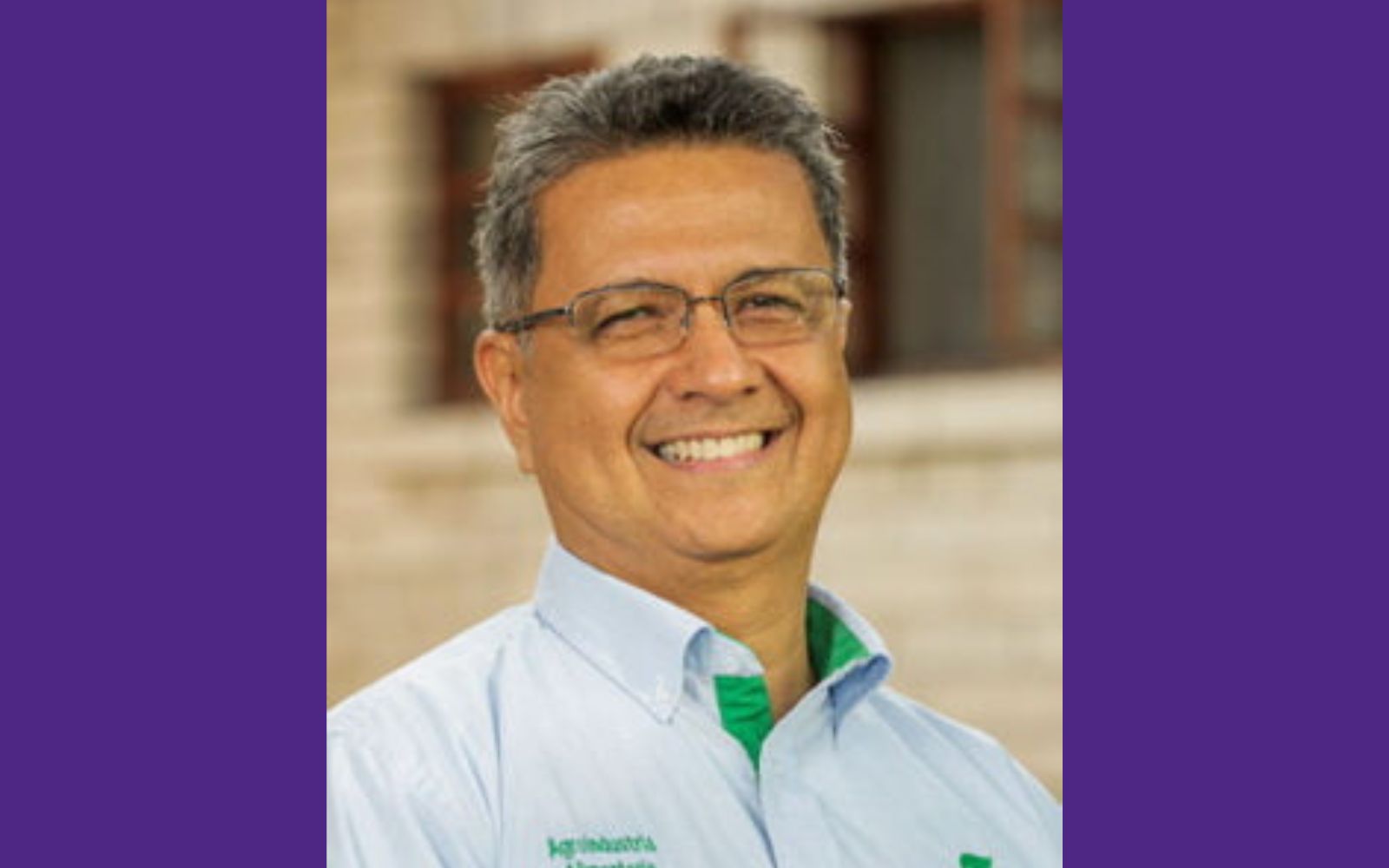Alumni Spotlight
Name: Raul Espinal
Current Title: Professor
Organization: Zamorano University (Honduras)
Major: M.S. Grain Science (1986), Ph.D. Entomology (1993)
K-State College of Ag is proud to recognize alumni from all departments who continue to pursue their passion in their respective fields. It is through experience that we continue to grow as individuals and stewards of the industry. Through those experiences, we hope to be a continued resource for the next generation of K-State students to lean on for advice and continue to build our network!
What value does traveling internationally provide to new graduates?
Traveling internationally and having experiences internationally gives you a much better view of the world and the ability to understand that human beings have a common ground.
Understanding international agriculture, in my case, because I have worked with multiple agencies, has given me a very understandable scope of what is going on in agriculture and where it's going in the human population around the world.
Traveling internationally and having the opportunity to study in a different country was the best value-added activity that I did. It was truly a once-in-a-lifetime opportunity to interact with people from all over the world.
Why is Zamorano University unique?
The main philosophy at Zamorano is learning by doing. Students have to work in the production units such as dairy plants, meat processing plants, and seed plants. They also have to work in the field, in the production areas like farm machinery and aquaculture.
We have different modules or production units. Students have to go to all of them for half of the day. They spend half of the day in these areas and then the other half of the day taking courses. They have a full load every trimester. We work in trimesters, which is 15 weeks, and a semester in the States is 16 weeks, so it is pretty close. It's very intensive and all, but we are a residential university. All our students live on campus, so we have a disciplinary code that students have to observe.
The main strengths of the university that we claim are academic excellence, learning by doing, and pan-Americanism.
We are a small university, hosting 1400 students. We have four departments: production agricultural, environmental science, agribusiness, and food science and technology. I have worked in three of the four departments. I started in production agriculture, working on a project that later became the environmental science department. And now, I'm in the food science and technology department.
We have around 1200-1250 students in undergrad programs. Our main focus is on undergrad, but we have 150 students in the graduate program. We have two master's degrees, and we are expanding our grad studies to include a certificate program. We are located in the central east of Honduras. We have international faculty. We have Americans, South Americans, Europeans, and local professionals like myself.
Why did you choose K-State?
I came to K-State and fell in love with the university and campus. While I was there, I visited the grain science department and learned how prestigious it was. I didn’t know until then that it was the only university that offered a degree in bakery science. After I found out that they had a grain storage area of study, I applied to the university.
After I finished my master’s, I came back and worked with the Swiss government for a while before moving on to Zamorano University to do similar work. I was excited to be able to teach a course related to grain science and post-harvest technology that I’d been working on since my graduate school days.
The spouse of the Zamorano University president at the time was Valerie Write, a K-State alumna, who encouraged me to pursue a Ph.D.
In the beginning, Zamorano University wanted me to go into economics, and I was looking for universities. I found a very prestigious university in the United Kingdom, Sussex University. The gentleman I was going to work with on my thesis research was retiring, and the new one didn't have the same approach. So, I reviewed K-State’s opportunities and found that the entomology department fit my expectations.
Afterward, I visited the entomology department and knew immediately it was the right department for me. The department was, at the time, fourth in the world. I was also intrigued to learn of the minors available alongside Entomology. Some that were of interest to me included economics, food science, or plant sanitation in the grain science area. Learning all of these opportunities existed in one place made it that much easier for me to come to K-State and complete my Ph.D. in the entomology department.
How can students stand out during an interview with prospective employers?
Above all, you need to let your future employees know that you are very interested in human beings. I think the way you present yourself to others is very important as well.
I know at world-class companies, and institutions, this is how they hire people. If they go to a conference or to a social event, and see a person that is treating others well with good manners will call the attention of future employers.
Making yourself attractive to a potential employer can oftentimes stem from a first impression and have less to do with your knowledge of their company. I have heard of individuals who have been hired solely based on an interaction with an employer with little knowledge of the company or product. There are employers out there that will hire individuals for their personal, problem-solving, or strategic planning skills. These are key factors in landing a job.